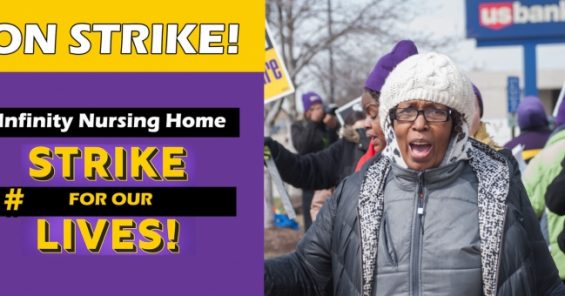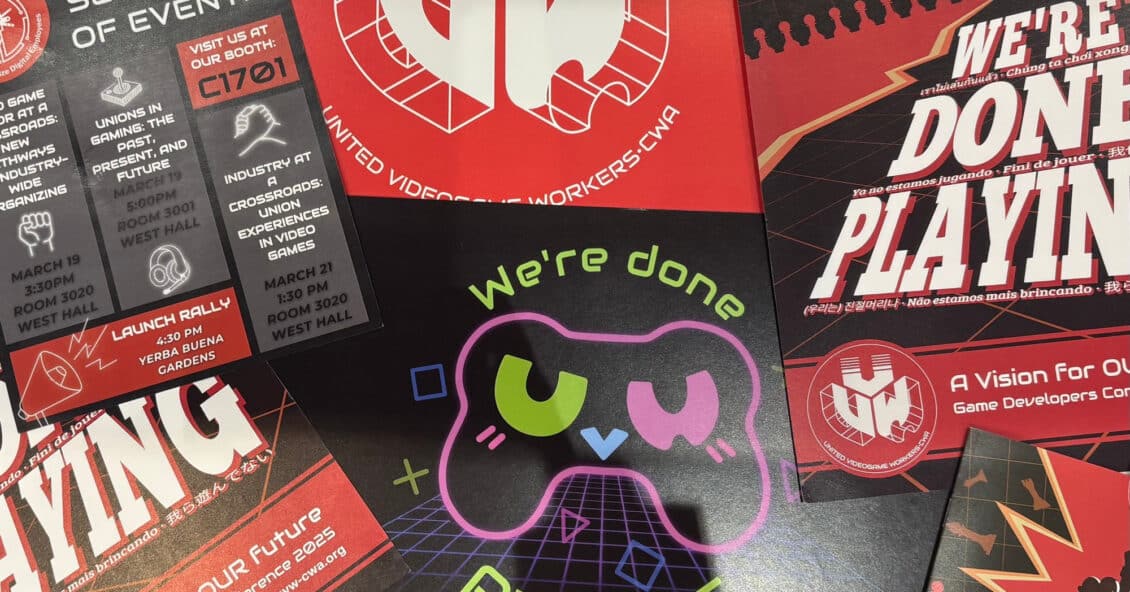Going on strike was the last thing they wanted to do, but nearly 700 long-term care workers in the American state of Illinois were given no other option.
Their employer, Infinity Healthcare Management, refused to negotiate a fair collective bargaining agreement that would provide essential rights such as a wage with dignity and protections needed to keep workers and residents safe. So, on 23 November, the workers walked off the job.
The nursing assistants, dietary aides, and housekeepers who are members of SEIU Healthcare Illinois have demanded at least a US$15 an hour wage, hazard pay for all employees, and a sufficient supply of personal protective equipment. They have been without a union agreement since June.
The workers have made clear that their demands are life or death.
“We are striking for our lives, to protect ourselves and our families and to stand up for our residents,” certified nursing assistant Shantonia Jackson said from a picket line in Cicero.
Workers report that lack protective equipment, such as masks, and low pay in the facilities creates additional problems for them and residents. Research backs them up.
Unions and collective bargaining have been associated with fewer deaths in long-term care facilities. This is because union workers are more likely to speak out about inadequate protections, have more control over their conditions and staffing levels, and earn better pay so they can minimize exposure by only working in facility.
“The poverty wages that nursing home workers are paid creates a downward spiral where no one wants to work at a nursing home, which creates a staffing crisis,” Janice Hill, who after 12 years only earns US$14.10 an hour while caring for 33 residents during her night shift.
This understaffing and lack of personal protections have caused nursing homes to become hotspots for the coronavirus’ spread in the United States and beyond. For example, a study this spring reported that half of total Covid-19 deaths in Europe occurred in long-term care facilities.
“These workers in Illinois are part of a global movement to revalue the work of essential workers,” said Christy Hoffman, General Secretary of UNI Global Union. “The care sector should put life at its core, but companies like Infinity are squeezing workers, denying them their essential rights, and ultimately hurting residents.”
In order to demand wages with dignity, safe workplaces, union representation, and other essential rights for essential workers worldwide, UNI launched a campaign to re-value the work of cleaners, security guards, food retail workers and care providers. The campaign recognizes that applause is not enough for these workers, whose labour keeps our society running.
“Outside there’s a sign that says workers are heroes, but unfortunately Infinity Healthcare does not want to treat them like heroes,” said Shaba Andrich, vice president for nursing homes at SEIU Healthcare Illinois.
The UNI stands with these 700 care workers, and millions of other essential workers, who are demanding that their employers treat them with the dignity they deserve and value what is essential.


